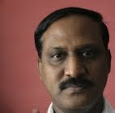PROTECTING PRIVILEGE
PROTECTING PRIVILEGE
by
RAJA SEKHAR VUNDRU
RAJA SEKHAR VUNDRU
Times of India, New Delhi
May 1, 2006
http://timesofindia.indiatimes.com/articleshow/msid-1510759,curpg-1.cms
On January 2, 1981, The Times of India, Ahmedabad, reported that medical students of B J Medical College, Ahmedabad, launched an agitation against reserved seats for scheduled caste candidates.
On January 12, medical college students in Vadodara, Jamnagar and Ahmedabad in Gujarat demanded abolition of reservations for scheduled caste (SC) and scheduled tribe (ST) candidates in postgraduate studies.
This agitation was followed by caste riots against SCs in central Gujarat in Ahmedabad, Mehsana, Kaira and Baroda districts. In 1985, anti-reservation forces rose in Gujarat to oppose quotas for socially and economically backward castes. However, in southern states backward castes had acquired access to otherwise-proscribed knowledge of medicine even before Independence.
Twenty five years later, as a sequel to the 1981 agitation, Delhi's medical students braved water cannons to prevent the entry of backward classes into the medical profession. The Associated Press picture of Arpita Majumdar will now become the standard fare of anti-reservation placards. One can appreciate her defiance, but not the reason behind it.
This country would have been a great place if 'equality-conscious' medical students like her had come to the streets and braved water cannons — when Dalits in Bihar were massacred by marauding senas; when Dalit women were stripped and paraded naked a million times in village streets and when Dalit farm labourer Bant Singh's hands and legs were amputated after upper caste rapists of his daughter broke them in Punjab this year and when inequalities in the country raise their million faces every morning.
Delhi's medical students are no different from the caste-rioting Gujarat medical students of 1981. This future generation of doctors resorted to sweeping roads in protest, implying the traditional profession of tens of lakhs of Dalit safai karamcharis is a lowly, ignominious one.
Who says these students are not casteist? The other favourite protest is to resort to shoe-shining as it is the job of a lowly untouchable mochi/chamar. Urban English education and their so-called merit has not taught medicine graduates that their form of protest violates human dignity of labour and insults those sweep for a living.
When the Delhi students were preparing for their agitation, Mohammed Rela, the world's top liver transplant expert, was flown in from London to Mumbai, for advice and surgery to help ailing Pramod Mahajan. While Gujarat was opposing reservation in 1980s, Rela was a young backward class Muslim student from Mayiladuthurai completing his studies in Stanley Medical College, Madras. He went on to enter the Guinness Book of World Records for performing a liver transplant on a five-day-old baby in London in 2000, and by 47 he had performed 800 liver transplant procedures.
In 2000, Dasari Prasada Rao, a young SC doctor, was granting millions of lives to his patients in Hyderabad, by performing a record number of open heart surgeries with zero-failure rate. Prasada Rao, who is director of the Nizam's Institute of Medical Sciences, was given the Padma Shri in 2001 for his contribution to cardio-thoracic surgery.
Theories of merit do not carry conviction. The medical profession is a business venture for those who have the money to invest. The loss of medical seats to children of artisans will be a great business loss for parents who plan investments for their doctor-children.
Marks secured by the non-reserved category of students who move to private medical colleges would be far less than marks of SC and ST (forget about OBC) students who enter government-run medical colleges. Interestingly, the medical profession is one which is yet to catch the imagination of the elites.
If rural medical service is made compulsory to every medical student for at least five years, half the general seats in government medical colleges will remain vacant and all private medical colleges will shut down. The medical profession is a money-spinner — hence, the opposition to entry of backward classes.
(The writer is an IAS officer. Views expressed are personal.)


0 Comments:
Post a Comment
<< Home